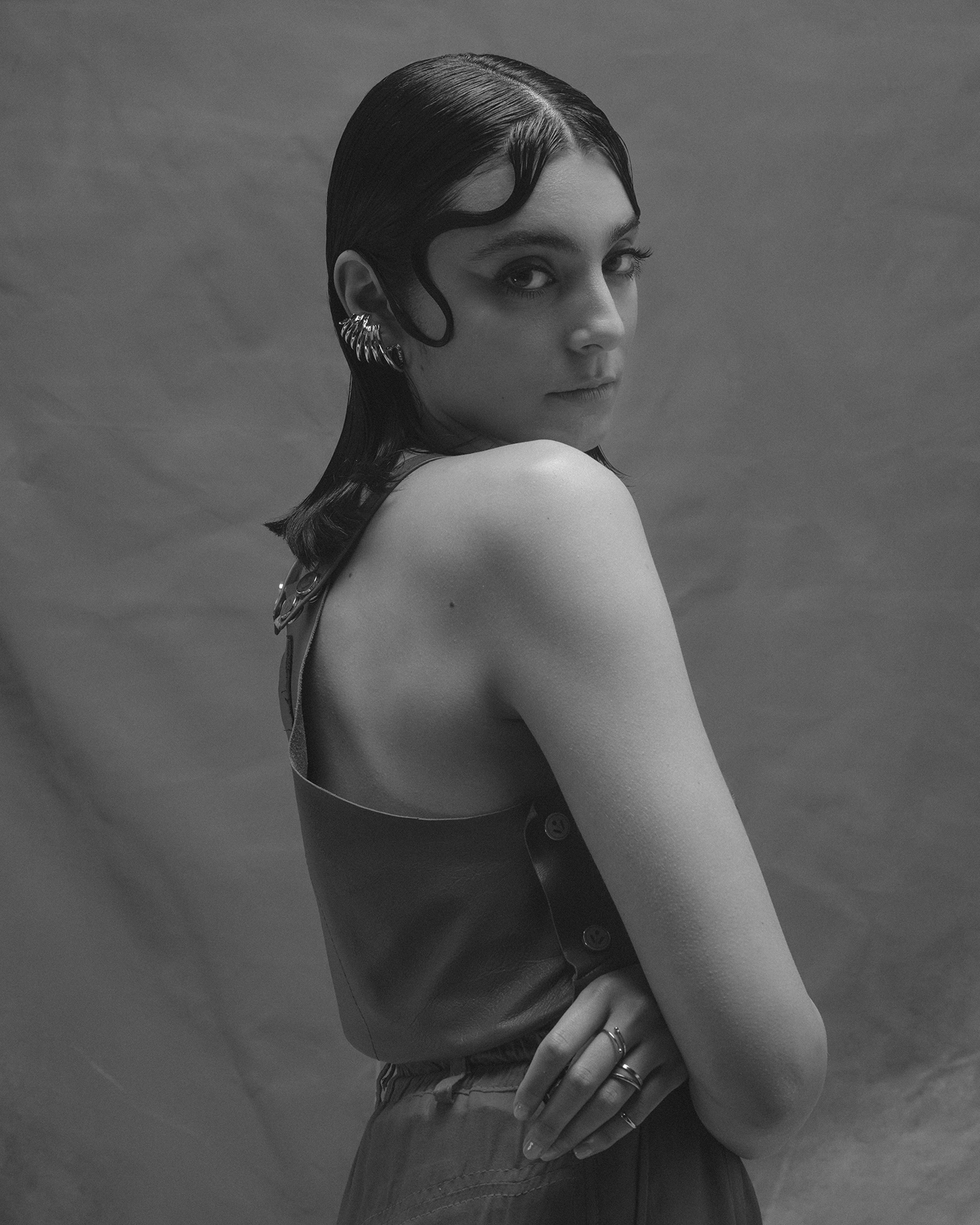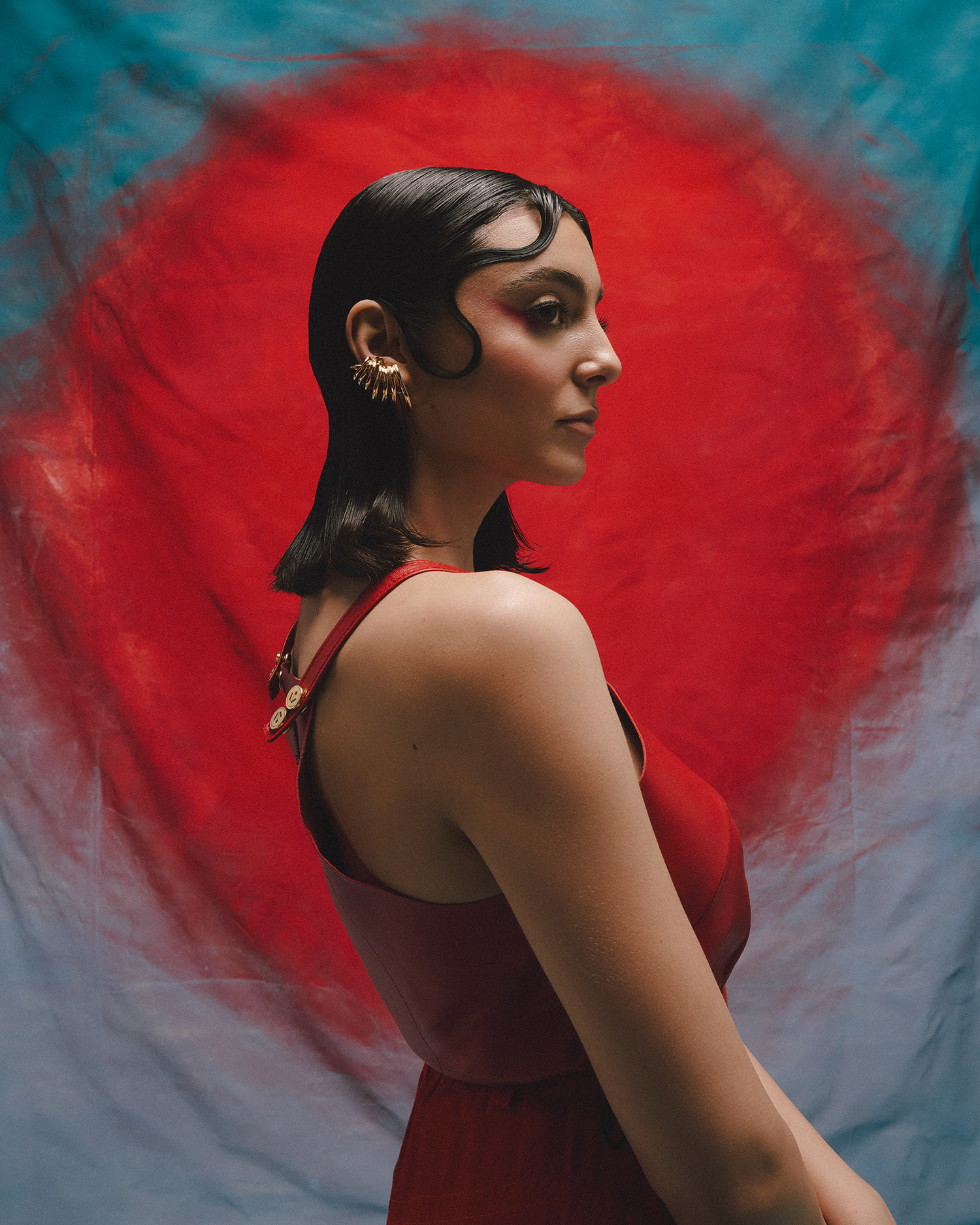London-based Zimbabwean pop star Ananya has officially released her latest single, “Happy,” which embodies the essence of sad girl pop. The track is an emotional exploration of human connection and the delicate balance between joy and sadness. It delves into the complexity of human relationships, where outward happiness often masks internal suffering.
Through deeply reflective lyrics, Ananya captures the sense of emotional uncertainty that many of us have faced, reminding listeners that it’s okay not to have everything figured out.
In this interview, Ananya opens up about the inspiration behind “Happy,” explaining that it originated from a place of confusion and emotional conflict she experienced. She shares how her journey with mental health has influenced not only this song but her entire body of work. The song’s message is clear: happiness and sadness can coexist, and allowing ourselves the space to feel vulnerable is important.
Mental health is a central theme in Ananya’s music, and “Happy” is no exception. The artist also mentioned her philanthropic work through the Nani Wellness Project, which aims to support mental health in Zimbabwe. In honor of this, she now accepts donations for her nonprofit organization.
Ananya, you are a great artist with an incredible journey in the music industry, from Zimbabwe to London, and your music has touched so many lives. How do you feel your cultural background has shaped your sound and storytelling?
Growing up in Zimbabwe has had a perpetual impact on my artistic journey, and I’m so grateful to carry that essence with me wherever I go. I often feel homesick, but London shapes my work in its own way, and I’m gradually adjusting to the fast pace here. It’s been exciting, learning to navigate it. I truly believe that, both as an artist and as an individual, our growth is rooted in where we come from and shaped by the experiences we collect along the way. These places have given me invaluable lessons about humanity, thought, and inspiration.
Your new single, “Happy,” was just released. What was the inspiration behind the track?
This song began as a question born from feeling lost and uncertain. There’s a real joy in celebrating someone else’s happiness, but how genuine is that happiness for either of us? I was inspired by the uncertainty I felt while reflecting on a situation—there was a longing for clarity. It was important to express that things aren’t always as they seem. There’s a feeling of being caught in between, unable to take a side or predict how things will unfold easily.

Why did you decide to name this song “Happy”?
Through my own mental health journey, I’ve realized that surface-level happiness can be overwhelming and even unhealthy at times. It’s not about being sad all the time either, but for my own well-being, I’ve learned it’s easier to face emotions as they come rather than pretending to be happy until the curtain falls. I wanted to highlight this surface happiness as a reflection of my experience, while also acknowledging that even when someone appears happy, we never know the weight they’re carrying. It’s so important to check in with yourself and also with your loved ones.
“Happy” resonates with people who may be going through tough times emotionally. What do you hope listeners take away from the song?
We’ve all experienced trying to seem happy when things weren’t quite right. I hope Happy offers comfort and connection to anyone who needs it or serves as a reminder that it’s okay not to be fully over something, and it’s okay not to be 100%.
You’ve been very open about your personal battles with mental health. How has your journey influenced the music you create?
Mental health is a top priority for me. During my teenage and young adult years, I faced my own challenges and found support through role models who stressed the acceptability of speaking up and seeking help. Speaking openly about mental health isn’t just being truthful—it’s a way to help others feel less alone. When it comes to my music, I’ve been able to turn it into a kind of journal entry, hoping that this vulnerability and honesty can offer guidance and comfort to those who need it, the same way it’s done for me.
Let’s talk about the Nani Wellness Project. You’re deeply involved in raising awareness about mental health in Zimbabwe. How did this project come to life, and why did you feel the need to start it?
My friend Tony and I found ourselves meeting regularly during 2020 to speak about one thing, and that was our mental health, as well as the mental health situation in Zimbabwe. Back home, public spending on mental healthcare is estimated at $0.13 per capita each year, with only 13 registered clinical psychologists practicing full-time. I often compare mental health to dealing with an accidental cut while cooking. When we cut ourselves, our first instinct is to clean the wound, apply a band-aid, and manage the pain so we can get back to what we were doing. But why don’t we apply the same immediate care to our minds and thoughts? Access to mental healthcare is a basic human right.
How does the platform work, and what impact have you seen so far?
The Nani Wellness Project is an online platform and app committed to providing free mental healthcare to Zimbabweans. Operated by volunteers registered with AHPCZ, our Nani Wellness app has attracted hundreds of users since its launch. Our primary goal has been to spark conversations—whether one-on-one or on a larger scale—to help break the stigma around seeking help and make mental healthcare more accessible and accepted.
You released the official music video for “Happy” on World Mental Health Day. What can you tell us about this visual?
The Happy music video highlights the repetition of a feeling that refuses to fade, like trying to move forward and overcome something but never quite getting there. It was essential to capture the moments of genuine happiness, uncertainty, and that instant when the mask drops, leaving the true emotion lingering underneath.
Between your music and your philanthropic work, you’re making a significant impact. What’s next for you, both as an artist and as an advocate for mental health?
To continue creating value through music or speaking out on causes close to my heart and home.

CONNECT WITH ANANYA
